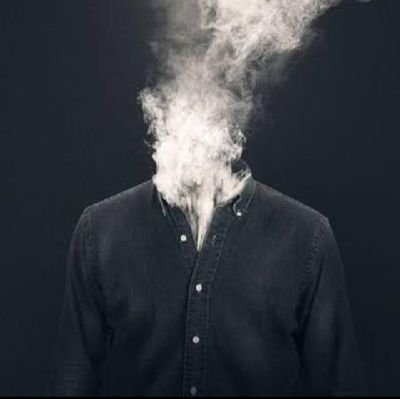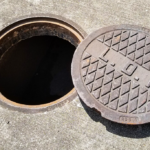Part I: Exploration – The Unearthing
Let me tell you about the week I found my father’s ghost in a book. Not a real ghost, mind you—no rattling chains or flickering lights. Just the kind that lives in yellowed pages, the ones that crumble at the edges like old regrets. You know how it goes: you’re digging through a box of “someday I’ll sort this” junk in the basement, and bam. There it is. A leather-bound thing, cracked and sun-bleached, smelling of mothballs and bourbon. His handwriting spidering across the pages.
I sat cross-legged on the floor, dust motes dancing in the slant of afternoon light, and opened it. The spine sighed, as if relieved someone finally listened. The first entry was dated 1987. I did the math, five years before I was born. Five years before he became “Dad,” back when he was just a man with a typewriter and a temper, chasing something he couldn’t name.
“Today, I decided I’ll build a house by the river,” he’d written. “Not for a family. For silence. A place where the water does the talking.”
I laughed. A real snort-laugh, the kind that startles you. The man I knew built sheds, not metaphors. He fixed carburetors, quoted football stats, and hid his whiskey in the garage. But here he was, young and feverish, scribbling about rivers and silence. I turned the page.
The entries got darker. By 1992, the year I learned to breathe, he’d written: “Love is a debt. Every kiss is a loan you’ll never repay.” Then, a poem—if you could call it that—about a bird trapped in a church steeple. Its wings beating against stained glass. Sacrilege and salvation, all in one.
I read until my knees ached. The basement grew dim. My phone buzzed—a text from my sister: “U coming up for supper?” I ignored it. Upstairs, life was Spaghetti with meatloaf and microwave beeps. Down here, it was 1999. The year he lost his job. The year he wrote: “Told the kids a story tonight. Made up a prince, a dragon, a happy ending. They believed it. I hate myself.”
Funny, right? The things we remember. I couldn’t recall that story, not a single detail. But I remembered his hands, grease under the nails, a tremor when he’d lift his coffee cup. Hands that built nothing by rivers, unless you count the levee of empty beer cans by the TV.
I closed the book. The cover left a film on my palms, like I’d been handling ash.
Part II: Deeper Reflection – The Confessional
Here’s the thing about sins: they’re sticky. They don’t stay put. You think you’ve packed them away in some basement of the mind, but nah. They seep. They stain.
I carried that book around all week. Read it in line at the supermarket store, at traffic lights, once during a Zoom meeting (camera off, obviously). It became a kind of séance. Every entry, another flicker of the man behind the dad-ness. The dreamer. The liar. The poet who thought love was a corpse he’d buried.
By Wednesday, I reached the 2000s. My era. The year I turned eight, he wrote: “She asked me why I never sing anymore. I told her the radio does it better. Truth is, my voice got lost somewhere. Maybe in the war. Maybe in the womb. Who the hell knows.”
She. That was Mom. She’d died two years ago, her hands still clutching a rosary, as if she could pray her way past the gates. I wondered if she’d ever read this. If she’d seen the way he painted her—a saint in one paragraph, a jailer in the next. “Her eyes are hymnals,” he wrote once. “I can’t bear to look.”
Thursday night, I got drunk. Not tipsy, not warm-and-fuzzy. Properly, miserably drunk. The book sat on the coffee table, glaring at me. I glared back. “You’re a coward,” I told it. “You built nothing. You left nothing. Just… words.”
But that’s the trap, isn’t it? We want our parents to be either heroes or villains. But they’re just… scribblers. Messy, unfinished drafts.
The last entry was 2016. The year he left. Not left-left. Just checked out. Sat in his recliner, staring at infomercials, while Mom cooked enough casseroles to feed a funeral. He’d written: “Dreamt of the river again. The house was there. Empty. Quiet. I tried to walk inside, but the door was a mirror. I saw my father’s face. Woke up screaming.”
I cried then. Ugly, snotty crying. Not for him. Not even for me. For the door that’s a mirror. For the river-house none of us can live in.
By Friday, I knew what I had to do. I drove to the bridge where they’d scattered Mom’s ashes. Held the book over the railing. Let the wind riffle the pages, like it was reading along.
“You’re wrong, old man,” I said. “Love doesn’t come home to die. It just changes shape.”
I let go. Watched the book tumble, a wounded bird, until the river took it.
Maybe it’ll wash up somewhere. Maybe someone else will find it, laugh at the stains, the scribbles, the sins. Or maybe the water will do the talking now.
Either way, I went home and called my sister. She didn’t answer. Left a voicemail: “Hey. Let’s build something. I don’t know—a treehouse. A poem. Whatever.”
Silence isn’t the answer. But it’s a start…
This post was created with our nice and easy submission form. Create your post!





